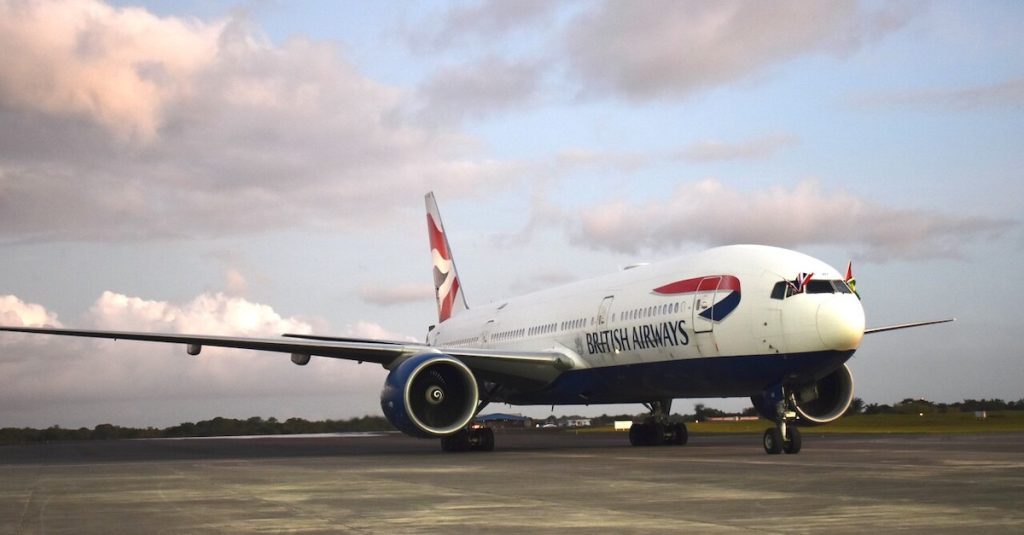British Airways has faced substantial operational challenges due to congested airspace and unpredictable weather. These factors have significantly contributed to flight disruptions, despite continued efforts to enhance punctuality and reduce cancellations.
According to airline representatives, the confluence of geopolitical events and heightened demand for air travel has further strained European airspace. This scenario has necessitated the adoption of strategic technological and collaborative measures to navigate these complex issues.
Airspace Congestion: A Growing Challenge
British Airways has attributed recent flight disruptions primarily to increasingly congested airspace. Richard Treeves, head of integrated operations control, emphasised that the situation has been exacerbated by the ongoing Ukraine conflict and rising demand for air travel. European airspace, particularly for routes originating from the UK to destinations like Greece, Turkey, and Cyprus, faces significant challenges.
The situation highlights the industrial-scale demand for air travel that is placing unprecedented strain on air traffic control systems. As flights operate in a highly dynamic environment, airlines are facing operational hurdles that require strategic adjustments and collaborations with regulatory bodies. Unpredictable weather further complicates the challenge, making schedule adherence increasingly difficult.
Weather-Related Complications
Treeves further explained that weather unpredictability has become a persistent issue this summer, complicating operations across Northern Europe. Unexpected weather patterns have significantly impacted the punctuality of airlines, not just British Airways. These climatic disturbances have forced airlines to adopt more flexible scheduling and routing strategies to minimise disruptions.
This year, disruptions affected 42% of British Airways flights, compared to 24% in 2019. Although this marks an improvement over last year’s disruptions, it remains a significant operational challenge. The airline insists that its focus on maintaining a robust schedule has helped outperform other legacy carriers despite these obstacles.
Operational Performance and Punctuality
Despite the challenges, British Airways claims to have maintained a better punctuality rate than many competitors. Treeves, while addressing the Business Travel Association (BTA) conference in Gibraltar, noted that they have prioritised punctuality through strategic resource management and enhanced operational protocols.
The airline operates over 850 flights daily, with around 100 aircraft in the air at any given time. This extensive operation makes British Airways more exposed to the prevailing airspace challenges. Nevertheless, they continue to strive for operational excellence. They recognise the need for continuous improvement in punctuality and overall service delivery.
British Airways is also focusing on leveraging technology to predict arrival times more accurately and optimise flight routes. Collaborating with air traffic control and airport teams is seen as crucial to addressing the complex airspace dynamics that currently affect European routes.
Strategic Technological Initiatives
The airline is actively working on technology-driven solutions to model future challenges and improve efficiency. By employing advanced algorithms, British Airways aims to enhance its scheduling precision and adapt to the congested airspace. These initiatives are vital in navigating the unpredictable operational landscape of European aviation.
Moreover, partnerships with organisations like Nats are crucial. Such collaborations focus on innovative solutions to mitigate air traffic congestion’s impacts, ensuring smoother operations and enhanced passenger experience. British Airways believes that technology and strategic alliances will play an essential role in overcoming current obstacles.
Collaborative Industry Efforts
Looking beyond its operations, British Airways acknowledges that the issues faced are industry-wide. The airline has joined a broader effort to address these challenges by working with regulators, fellow airlines, and various stakeholders within the aviation sector.
These collaborative efforts aim to develop comprehensive strategies for managing airspace and improving traffic flow management. By uniting with industry partners, British Airways seeks sustainable long-term solutions that benefit the entire aviation ecosystem.
Through continuous dialogue and shared strategies, the airline hopes to contribute to an industry-wide effort that mitigates current challenges and fosters future growth in the aviation sector.
Future Outlook
Treeves conveyed optimism regarding future operational capabilities despite current constraints. The airline remains committed to enhancing its performance levels and addressing airspace and weather-related challenges through sustained efforts and technological advancements.
The focus remains on refining operational frameworks to increase efficiency and minimise travel disruptions. British Airways is determined to lead in developing industry best practices, working alongside partners to ensure a resilient aviation sector capable of withstanding future challenges.
In summary, the challenges faced by British Airways are reflective of broader industry dynamics. Through strategic initiatives and industry-wide collaboration, the airline is dedicated to enhancing its operational resilience.
By focusing on technological advancements and cooperative efforts with stakeholders, British Airways aims to mitigate current obstacles and achieve sustainable growth in a challenging environment.

